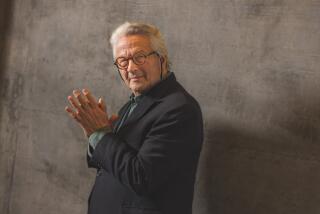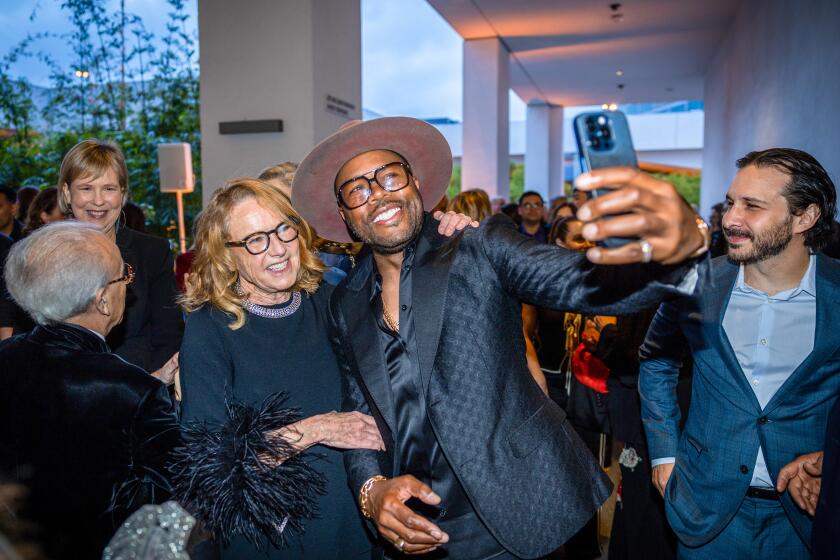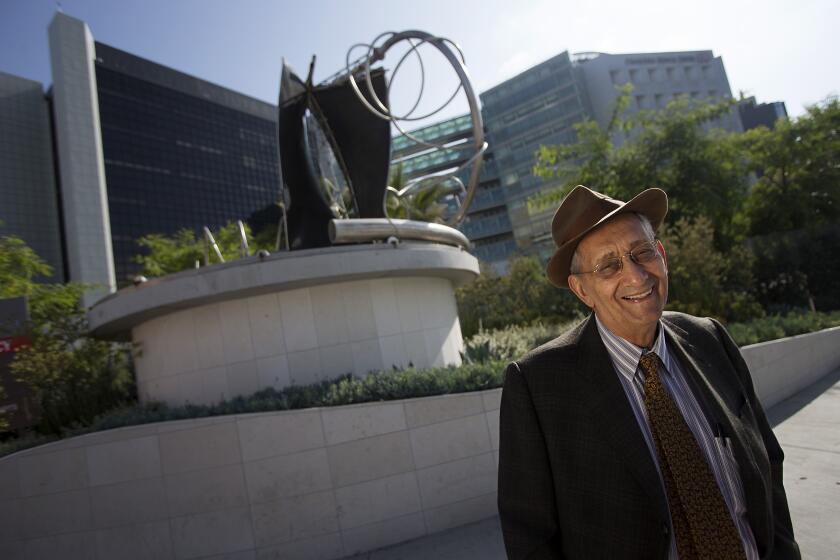PREVIN AT THE PIANO : PHILHARMONIC CHAMBER SOCIETY
There are two kinds of chamber music: the intimate variety practiced in small halls and dedicated to the communion of musical minds for the delectation of lovers of the genre. And the more public and glamorous kind, given in larger auditoria, by players of reputation, often for would-be connoisseurs.
As shown again at the opening concert of its new season, Monday night in Gindi Auditorium at the University of Judaism, the Los Angeles Philharmonic Chamber Music Society tries to specialize in both kinds--with varying success.
Gindi Auditorium, high on the hill above Mulholland Drive, is both intimate and glamorous--and sometimes acoustically metallic. The players on this occasion were none less than Andre Previn (music director of the Philharmonic) on piano; Sidney Weiss (the orchestra’s concertmaster) on violin, and principal players Anne Diener Giles on flute and Ronald Leonard on cello. These four, one hardly need add, are both famous and dedicated.
Before a virtually full hall in the 519-seat auditorium, the four exhibited their virtuosity--while outside a rainstorm raged. It was not an evening of quiet pleasures, such as any of these players might on some other occasions take part in, but of mainstream, hard-edged music-making, aggressive and self-conscious.
Weiss--who, when off Philharmonic duty, regularly performs in a duo with his wife, pianist Jeanne Weiss--offered the usually understated and thoughtful charms of Brahms’ Sonata in A, Opus 100, with Previn (of course) at the piano.
Though obviously familiar with the work, the two players seemed less familiar with each other; their collaboration had a certain standoffishness, as if the lyrical content of the work were embarrassing, instead of inspiring.
Giles--who, in non-orchestral life, regularly performs in a duo with her husband, pianist Allen Giles--made the most of all her chances for artful display in Prokofiev’s showy and eventful Sonata in D, Opus 94.
Previn played the complicated, extroverted piano part with the punch and studied nonchalance of an acknowledged master-interpreter of the 20th-Century repertory. He even managed, in the mid-portion of the finale, a genuine mezzo-piano on the otherwise over-brilliant Baldwin piano he used; such quietness, however brief, was welcome.
In other circumstances, Leonard’s rhetorical and impassioned playing of the Sonata by Cesar Franck (in the transcription by Jules Delsart) might be less overwrought, more inward. In these surroundings, cellist Leonard and pianist Previn seemed to specialize in coarse loudness and broad, rather than detailed, statements. Such a viewpoint is valid, of course, but not cherishable.
More to Read
The biggest entertainment stories
Get our big stories about Hollywood, film, television, music, arts, culture and more right in your inbox as soon as they publish.
You may occasionally receive promotional content from the Los Angeles Times.






